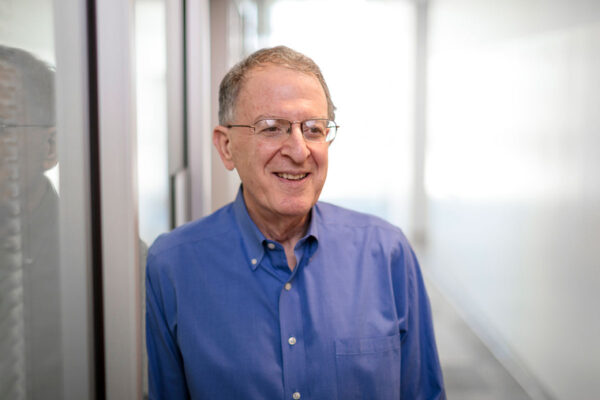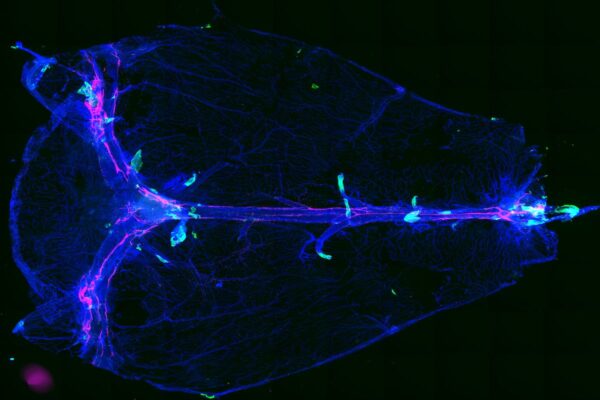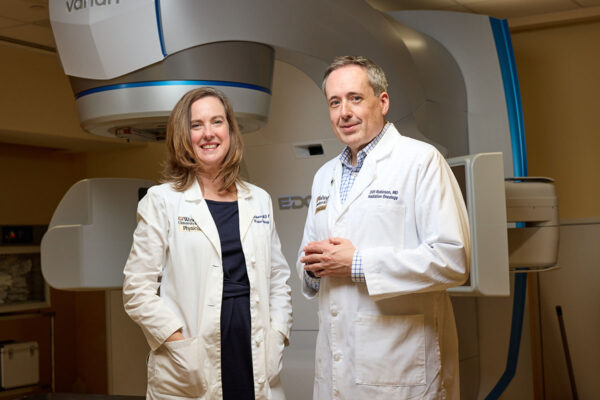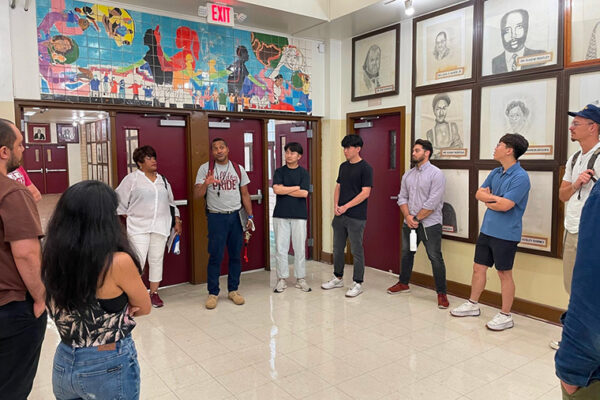WashU awarded up to $20M to create portable device to scan for eye diseases
Chao Zhou, a professor of biomedical engineering in the McKelvey School of Engineering at Washington University in St. Louis, has been awarded an up to $20 million contract from the Advanced Research Projects Agency for Health to improve optical coherence tomography systems that can conduct high-resolution imaging of the eyes.
Gordon receives Nemmers Prize
Jeffrey I. Gordon, MD, of Washington University School of Medicine in St. Louis, has received the 2024 Mechthild Esser Nemmers Prize in Medical Science from Northwestern University.
University partners with Greater St. Louis Marathon
A tradition for more than two decades, the Greater St. Louis Marathon returns April 27 with a new name, a new course and new pre- and post-run events. The race also has a new partner: Washington University in St. Louis, which is offering employees and students discounted registration fees.
STEM training, apprenticeships increase work satisfaction
Participation in a STEM apprenticeship program increased job happiness, finds a new study from the Brown School at Washington University in St. Louis.
How does waste leave the brain?
School of Medicine scientists have discovered a brain structure that allows fluid waste to leave the brain. The researchers think these structures, and the cells and molecules positioned around them, may help lead to new therapies for neuroinflammatory diseases.
Get your eclipse fix during Saturday Science events
The Department of Physics in Arts & Sciences is offering a series of free public lectures in advance of the 2024 total solar eclipse. The first one, taking place Saturday, Feb 10, is titled: “Cosmic coincidence: The science of eclipses.”
NIH grant to fund radiation oncology center on Medical Campus
The School of Medicine has received a $7.8 million grant from the National Institutes of Health (NIH) to support a radiation oncology center that will aim to understand the biologic effects of radiation therapy in cancer treatment. Julie K. Schwarz, MD, PhD, and Clifford G. Robinson, MD, will lead the center.
‘Humanities at Work’
The Center for the Humanities in Arts & Sciences will launch “Humanities at Work: Graduate Internships for the Next Generation.” Supported by a grant from the National Endowment for the Humanities, the program aims to prepare doctoral candidates for a wider range of career pathways.
Prehistoric mobility among Tibetan farmers, herders shaped highland settlement patterns, cultural interaction, study finds
Research by Michael Frachetti in Arts & Sciences and researchers at Sichuan University in China explores how and why ancient communities built social relationships and cultural identities across the extreme terrain in Tibet.
Student club hosts Stuart Weitzman, shoe designer and entrepreneur, Feb. 8
Legendary shoe designer and entrepreneur Stuart Weitzman will discuss his design philosophy and experience building an internationally renowned company at a free event Feb. 8 open to the WashU community.
View More Stories









